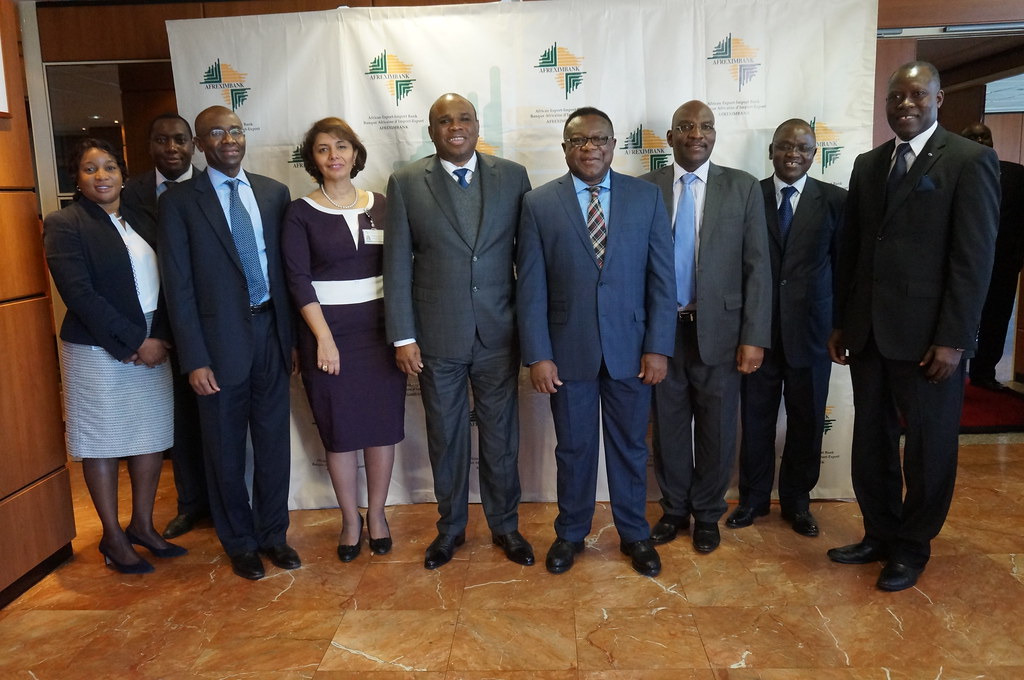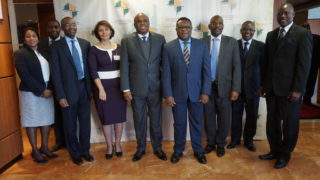The Model Law on Factoring, developed and promoted since 2016 by the African Export-Import Bank (AfreximBank), a Development Partner of the African Capacity Building Foundation (ACBF) has become more relevant than ever, with the launch of the African Continental Free Trade Area (AfCFTA).
Lack of access to trade finance has been one of the impeding factors to trade, specifically for small and medium enterprises (SMEs) across the continent. While several innovative development finance solutions have been introduced to address the challenge, there many businesses still face limited access to trade finance mainly linked to perceived potential risks and losses.
Moreover, given the negative and disproportionate impact of COVID-19 on the finances of SMEs in Africa, there is an urgent need and an opportunity for factoring to be promoted to enable SMEs to grow their businesses, expand export capacity, increase intra-Africa trade as part of the post-COVID-19 recovery and resilience to build back better.
The AfreximBank has reaffirmed its readiness to support factoring as a viable alternative source of trade financing for the SMEs in Africa saying, “given that access to finance remains a key constraint to operations of SMEs in Africa, availability of sustainable trade finance, is essential to propel the AfCFTA.”
Factoring is a financial transaction and a type of debt financing in which a business sells its receivables or outstanding invoices to a third party at a discount. It is a form of selling the receivables to an agent at less than its full value in order to trade.
The Banks’ Managing Director of Intra-African Trade Initiative and Chairperson of FCI’s Africa Chapter, Ms. Kanayo AWANI, recently told participants at a virtual workshop focused on ‘opportunities for factoring in Africa,’ that “the Bank had to date provided financing to emerging factoring companies in Cameroon, Senegal, Congo, Zimbabwe, Botswana and Nigeria while factoring volumes in Africa grew by 10% to EUR 24 billion in 2019.”
ACBF Executive Secretary, Prof. Emmanuel NNADOZIE says “the Foundation is convinced that factoring is an effective and friendly solution and a potential game changer that is at the disposal of African enterprises.
Technically, factoring is not a loan but a facilitator. I therefore implore aspiring and existing entrepreneurs to endevour to know more and take advantage of the facility. We are also going to contribute to carrying out various capacity building initiatives, including engaging legislators from the continental to regional levels to ensure that Parliaments are well versed and support the adoption of the Model Law on Factoring.”
The African Capacity Building Foundation also calls on key stakeholders such as government officials, African regional organizations, regulators, business chambers and private sector in general, to work towards improving the legal and regulatory environment for factoring, saying confidence in the facility would open doors for many players to enjoy the benefits of intra-Africa trade and grow the economy of Africa.
For ease of reference, the Model Law on Factoring is accessible on the ACBF Virtual Library https://elibrary.acbfpact.org/ in both English and French languages.
————————————————————————————————————————For inquiries and more information, please contact:
Ntsiuoa SEKETE (Ms), Senior Communication Officer, African Capacity Building Foundation (ACBF), +27 72 658 9295, [email protected]
Follow us @:
Website www.acbf-pact.org
Twitter https://twitter.com/ACBF_Official
Facebook www.facebook.com/ACBFOfficial
Brandstories Disclaimer:
Brandstories is not liable for the contents of the information published on this platform. The information which subscribers publish on this website is for general information purposes only and Brandstories facilitates the ability for viewers and subscribers to access this platform. Subscribers who publish their content on Brandstories are held responsible for their own content. This includes ensuring that it is factually accurate, grammatically correct, free of spelling errors, and does not contain unsavoury content that could result in legal action. In the case of linguistic translations, the onus is on the client to ensure that the translation is accurate. In no event does Brandstories make representations or warranties of any kind, expressed or implied about the completeness, accuracy, reliability, suitability or availability with respect to the information supplied and published. This website includes links to other websites, including third party websites. Brandstories does not recommend, endorse or support any views that are held by subscribers publishing information, and within these links provided. Furthermore, Brandstories does not have control over the nature, contents and availability of information contained on these sites. Any form of reliance readers and consumers may place on information published on Brandstories is strictly at their own risk. Brandstories makes every effort to ensure that the website is up and running smoothly at all times, however Brandstories does not take responsibility for, and will not be held liable for times when the website is temporarily unavailable due to technical glitches that are beyond our control.
You may also like
-
Steps towards sustainability must be a key part of every business’s strategy for success
-
DPD Laser and Multiserv partner to democratise parcel delivery to all South Africans
-
DPD and NSBC join hands to empower South Africa’s small businesses
-
Driving tech integration to accelerate business growth
-
One million parcels delivered


